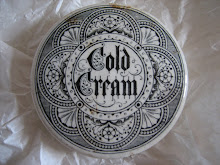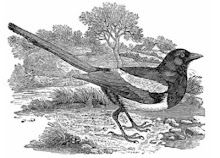
MrM
Do you remember when MasterM learned
"The Owl and The Pussycat"
off by heart?
MrsM
Yes!
He was only 3!
He was SO cute!
MrM
We made him do it as a party trick
which is probably why
he never ever learned another poem.
MrsM
I know!
We were shocking parents!
I think I still have the book.
And MrsM found the book
and began to read to MrM...
***
with many thanks to
Jenny and the Young Academic
for technical assistance.
Do you remember when MasterM learned
"The Owl and The Pussycat"
off by heart?
MrsM
Yes!
He was only 3!
He was SO cute!
MrM
We made him do it as a party trick
which is probably why
he never ever learned another poem.
MrsM
I know!
We were shocking parents!
I think I still have the book.
And MrsM found the book
and began to read to MrM...
***
with many thanks to
Jenny and the Young Academic
for technical assistance.
.jpg)
.jpg)





How lovely to hear you - even if it is only electronically!
ReplyDeleteWhat a delight it is to hear you!
ReplyDeleteYou silly.
ReplyDeleteAnd now, I know the voice of all the lovely words.
ReplyDeleteI feel better now about making Big Lad memorize the Gettysburg Address when he was little...
ReplyDelete(You have the prettiest voice ever, o giggly one.)
what a treat, giggles to listen to!
ReplyDeleteYou have a voice full of laughter. I think if you ever gave up the day job, you would be perfect for a career in 'talking books' Martin Jarvis watch your back!
ReplyDeletegiggling
ReplyDeleteSo THAT'S what you sound like.....
ReplyDeletedrink may have been taken ...
ReplyDeletecan't completely remember though
personally my favourite pome is "The Eagle" by Alfred, Lord Tennyson.
ReplyDeleteTwo four line stanzas - suitable effect for minimum learning time
And did Master M get the giggles like his Mummy?
ReplyDelete(Lovely to hear you!)
Dear pig are you willing
ReplyDeleteTo sell for one shilling
Your ring?
Said the piggy, I will.
just what exactly is a runcible spoon anyway ?
ReplyDeletewhere would lunchtime be without Wikipedia or TMS ??
ReplyDelete"Runcible" is a nonsense word invented by Edward Lear. The word appears (as an adjective) several times in his works, most famously as the "runcible spoon" used by the Owl and the Pussycat.The word "runcible" was apparently one of Lear's favourite inventions, appearing in several of his works in reference to a number of different objects. In his verse self-portrait, The Self-Portrait of the Laureate of Nonsense, it is noted that "he weareth a runcible hat". Other poems include mention of a "runcible cat", a "runcible goose" (in the sense of "silly person"), and a "runcible wall".
Lear does not appear to have had any firm idea of what the word "runcible" means. His whimsical nonsense verse celebrates words primarily for their sound, and a specific definition is not needed to appreciate his work. However, since the 1920s (several decades after Lear's death), modern dictionaries have generally defined a "runcible spoon" as a fork with three broad curved prongs and a sharpened edge, used with pickles or hors d'oeuvres, such as a pickle fork. It is occasionally used as a synonym for "spork". However, this definition is not consistent with Lear's drawing, in which it is a ladle, nor does it account for the other "runcible" objects in Lear's poems.
It is also sometimes used to mean a "grapefruit spoon", a spoon with serrated edges around the bowl, and sometimes to mean a serving-spoon with a slotted bowl.
The "Notes & Queries" column in The Guardian also raised the question "What is a runcible spoon?" The fanciful answers proposed by readers included that it was a variety of spoon designed by Lear's friend George Runcy for the use of infants, or that it was a reference to a butler named Robert Runcie whose job included polishing the silver spoons. The final contribution pointed out that neither of these explained the runcible cat in "The Pobble Who Has No Toes" and simply suggested that "runcible objects (spoons or cats) exist no more than pobbles or feline-hiboutic matrimony".
The Straight Dope, while treating "runcible" as a nonsense word with no particular meaning, claims that an (unspecified) 1920s source connected the word "runcible" etymologically to Roncevaux — the connection being that a runcible spoon's cutting edge resembles a sword such as was used in the Battle of Roncevaux Pass. The Straight Dope adds that "modern students of runciosity" link the word in a different way to Roncevaux: The obsolete adjective "rouncival", meaning "gigantic", also derives from Roncevaux, either by way of a certain large variety of pea grown there, or from a once-current find of gigantic fossilized bones in the region.
In C.J. Sansom's novel Dissolution, set mainly in a monastery to be dissolved by Thomas Cromwell under Henry VIII, the lead character, Matthew Shardlake, a lawyer working for Cromwell, sups with the monks in their refectory "where a great haunch of beef was served with runcible peas." In this case the word is a version of "rounceval" meaning a large pea, a large woman or a wart.
In Claire Messud's novel When The World Was Steady the character Virginia describes her boss in this way: "Truth be told, she had never found Simon in the least physically attractive: he was squat and runcible and slightly foolish."
In Thomas Pynchon's Gravity's Rainbow, an exhibition fight with runcible spoons is held.
In Lemony Snicket's The End, an island cult eats using only runcible spoons.
Used as a character name - In Evelyn Waugh's novel Vile Bodies, Runcible is the last name of daft, drunken Agatha.
Cuisine - In Washington, DC, The Runcible Spoon is a guerrilla food zine.
This just made me smile, as it sounds like you are having a great time...
ReplyDeleteI am English, but live in the US, and it was *lovely* to hear an English accent like mine again.
Thanks!
The laughter in your voice is so infectious Alice! This is definitely a blog to keep. I have the giggles now. Wonderful!
ReplyDeleteBobby x
Ravingreader - I always think the mark of being English is that one does not have an accent - it's everyone else that does of course ;-)
ReplyDeleteOh , go on ! Take a deep breath and read the rest , that didn't last nearly long enough .
ReplyDeleteWe all promise to be good .
Princess Curly-Wurly only had 'Very Hungry Caterpillar' and 'The Elephant and The Bad Baby' down by that age. And destructoBoy could only recite 'The 12 Days of Christmas.'
ReplyDeleteBlame the uncultured parents I say.
your gorgeous giggle!
ReplyDeleteSO much fun to hear you, Alice! And thank you, MrM, for the very long, long, long explanation of runcible.
ReplyDeleteHas Mr M considered starting a blog of his own?
ReplyDeleteAh go on! There'd be Followers.
why have a blog and bark oneself ?
ReplyDeleteAlice that is one of my favourite poems, I have plans to do a nice felt picture of it. So nice to hear your lovley voice :-) Just letting you know that I am reading but I have to change server to be able to comment for some reason? Today I just had to say how lovely!
ReplyDelete